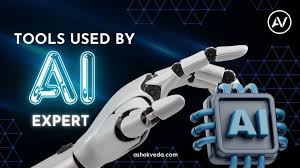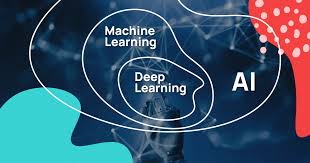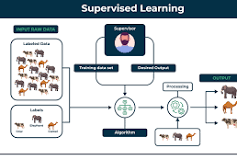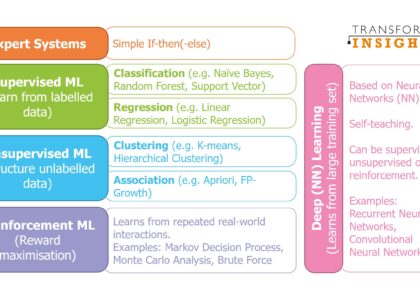AI Technology Experts: Pioneers of the Digital Age
In today’s rapidly evolving digital landscape, AI technology experts are at the forefront of innovation, driving advancements that are reshaping industries and everyday life. These professionals possess a unique blend of skills and knowledge, enabling them to develop intelligent systems that mimic human behaviour and decision-making processes.
The Role of AI Technology Experts
AI technology experts play a crucial role in designing, developing, and implementing artificial intelligence solutions. Their work involves a deep understanding of machine learning algorithms, data analysis, and software engineering. By leveraging these skills, they create systems capable of performing tasks that traditionally required human intelligence.
These experts are responsible for training AI models using large datasets to recognise patterns and make predictions. They also ensure that these models are accurate, efficient, and adaptable to new information. Their expertise is vital in sectors ranging from healthcare and finance to automotive and entertainment.
Impact Across Industries
The impact of AI technology experts is evident across various industries:
- Healthcare: In the medical field, AI experts develop systems that can diagnose diseases with high accuracy, predict patient outcomes, and personalise treatment plans.
- Finance: Financial institutions rely on AI for fraud detection, risk assessment, and algorithmic trading. Experts in this domain help optimise operations while ensuring security.
- Automotive: The development of autonomous vehicles is largely driven by AI specialists who create complex systems for navigation, object detection, and decision-making.
- Entertainment: From recommendation engines to virtual reality experiences, AI experts enhance user engagement by tailoring content to individual preferences.
The Skills Required
A career as an AI technology expert demands a robust set of skills. Proficiency in programming languages such as Python or R is essential for developing algorithms. A strong foundation in mathematics and statistics is also crucial for understanding machine learning concepts.
Moreover, soft skills like problem-solving ability, creativity, and effective communication are important as these professionals often work in teams to tackle complex challenges. Continuous learning is another key aspect since the field of AI is constantly evolving with new techniques and technologies emerging regularly.
The Future of AI Technology Experts
The demand for skilled AI technology experts continues to grow as more organisations recognise the potential benefits of integrating artificial intelligence into their operations. As this trend persists, these professionals will play an increasingly important role in shaping the future economy.
With advancements in areas such as natural language processing (NLP), computer vision, robotics with ai components included ,and more sophisticated neural networks on the horizon ,the scope for innovation seems limitless .AI technology experts will be instrumental not only in advancing technological capabilities but also ensuring ethical considerations are met when deploying such powerful tools .
Conclusion
AI technology experts are truly pioneers of our digital age ,driving transformative changes across diverse sectors .Their expertise enables businesses ,governments ,and individuals alike harness power artificial intelligence improve efficiency enhance experiences ultimately make better decisions .As we move forward into increasingly interconnected world fuelled by data-driven insights provided through intelligent machines guided hands skilled practitioners like these become even more invaluable society at large .
9 Essential Tips for Aspiring AI Technology Experts
- Stay updated with the latest advancements in AI technology.
- Develop a strong foundation in mathematics and statistics.
- Gain practical experience through projects and internships.
- Specialize in a specific area of AI, such as machine learning or natural language processing.
- Collaborate with other experts to stay innovative and informed.
- Continuously improve your programming skills, especially in languages like Python and R.
- Understand the ethical implications of AI technology and strive to develop responsible solutions.
- Communicate complex technical concepts clearly to non-technical stakeholders.
- Network with professionals in the field through conferences, workshops, and online forums.
Stay updated with the latest advancements in AI technology.
Staying updated with the latest advancements in AI technology is crucial for any AI technology expert aiming to remain at the forefront of their field. The rapid pace of innovation in AI means that new algorithms, tools, and techniques are constantly emerging, each with the potential to revolutionise existing practices. By keeping abreast of these developments through academic journals, industry conferences, and online forums, experts can enhance their skills and apply cutting-edge solutions to complex problems. This continuous learning process not only ensures they maintain a competitive edge but also enables them to contribute meaningfully to the evolution of artificial intelligence, driving progress across various sectors.
Develop a strong foundation in mathematics and statistics.
Developing a strong foundation in mathematics and statistics is essential for AI technology experts, as these disciplines form the backbone of machine learning and artificial intelligence algorithms. Mathematics provides the theoretical framework needed to understand complex concepts such as calculus, linear algebra, and probability, which are crucial for designing and optimising AI models. Statistics, on the other hand, equips experts with the skills to analyse data effectively, identify patterns, and make informed predictions. A deep understanding of these subjects enables AI professionals to create robust models that can learn from data accurately and efficiently. By mastering mathematics and statistics, AI technology experts can tackle challenging problems with precision and contribute significantly to advancements in the field.
Gain practical experience through projects and internships.
Gaining practical experience through projects and internships is invaluable for aspiring AI technology experts. These opportunities provide hands-on exposure to real-world challenges, allowing individuals to apply theoretical knowledge in practical settings. Engaging in projects helps develop problem-solving skills and fosters a deeper understanding of AI tools and techniques. Internships, on the other hand, offer the chance to work alongside seasoned professionals, providing insights into industry practices and trends. This experience not only enhances technical proficiency but also builds a network of contacts within the field, which can be instrumental in advancing one’s career. By tackling diverse tasks and collaborating on innovative solutions, emerging AI experts can significantly boost their confidence and competence in this rapidly evolving domain.
Specialize in a specific area of AI, such as machine learning or natural language processing.
Specialising in a specific area of AI, such as machine learning or natural language processing (NLP), can significantly enhance an expert’s career prospects and impact. By focusing on a particular domain, AI professionals can develop deep expertise and become leaders in their chosen field. Machine learning specialists concentrate on creating algorithms that enable systems to learn from data and improve over time without explicit programming. Meanwhile, experts in NLP work on enabling machines to understand and interpret human language, facilitating advancements in communication technologies like chatbots and voice assistants. This specialisation not only allows for greater innovation but also enables experts to address complex challenges with precision, making them invaluable assets to organisations seeking to harness the full potential of artificial intelligence.
Collaborate with other experts to stay innovative and informed.
Collaboration with other AI technology experts is essential for staying innovative and informed in this rapidly evolving field. By working alongside peers, professionals can share insights, exchange ideas, and tackle complex challenges together. This collaborative approach not only fosters creativity but also ensures that experts remain abreast of the latest advancements and emerging trends. Engaging with a diverse group of specialists from various backgrounds can lead to novel solutions and fresh perspectives, ultimately driving progress in AI technology. Furthermore, collaboration provides opportunities for continuous learning and professional growth, enabling experts to refine their skills and maintain their competitive edge in the industry.
Continuously improve your programming skills, especially in languages like Python and R.
In the ever-evolving field of artificial intelligence, continuously improving your programming skills is essential for AI technology experts. Mastery of languages such as Python and R is particularly important, as these are widely used for developing machine learning models and data analysis. Python, with its extensive libraries and frameworks like TensorFlow and PyTorch, offers robust tools for building complex AI systems. Meanwhile, R is invaluable for statistical computing and data visualisation, enabling experts to derive insights from large datasets. By staying updated with the latest advancements in these languages and regularly practising coding techniques, AI professionals can enhance their ability to create innovative solutions and maintain a competitive edge in the industry.
Understand the ethical implications of AI technology and strive to develop responsible solutions.
Understanding the ethical implications of AI technology is crucial for AI technology experts, as their work has far-reaching impacts on society. As these professionals develop intelligent systems, they must consider issues such as privacy, bias, and accountability to ensure that their solutions are responsible and equitable. Striving to create ethical AI involves implementing transparent algorithms, safeguarding data privacy, and actively working to eliminate biases that could lead to unfair treatment or discrimination. By prioritising ethical considerations, AI experts can build trust in the technology they develop and ensure it benefits society as a whole while minimising potential harm. This commitment to responsible innovation is essential in guiding the future development and deployment of artificial intelligence.
Communicate complex technical concepts clearly to non-technical stakeholders.
Effective communication is a crucial skill for AI technology experts, particularly when conveying complex technical concepts to non-technical stakeholders. By translating intricate ideas into clear, accessible language, these experts ensure that all parties involved have a comprehensive understanding of the project’s goals and implications. This ability to bridge the gap between technical and non-technical audiences fosters collaboration and informed decision-making, ultimately leading to more successful outcomes. Utilising analogies, visual aids, and straightforward explanations can help demystify advanced AI concepts, enabling stakeholders to appreciate the benefits and limitations of proposed solutions.
Network with professionals in the field through conferences, workshops, and online forums.
Networking with professionals in the field of AI technology is invaluable for anyone looking to advance their career or deepen their understanding of the discipline. Attending conferences and workshops provides opportunities to engage with leading experts, gain insights into the latest developments, and discuss emerging trends. These events often feature keynote speakers and panel discussions that can offer unique perspectives on complex topics. Additionally, participating in online forums allows for continuous interaction with a global community of AI enthusiasts and professionals. Such platforms facilitate knowledge exchange, collaboration on projects, and staying updated with cutting-edge research. Building a strong professional network can open doors to new opportunities, foster collaborations, and provide support from peers who share similar interests and challenges in the ever-evolving world of AI technology.






